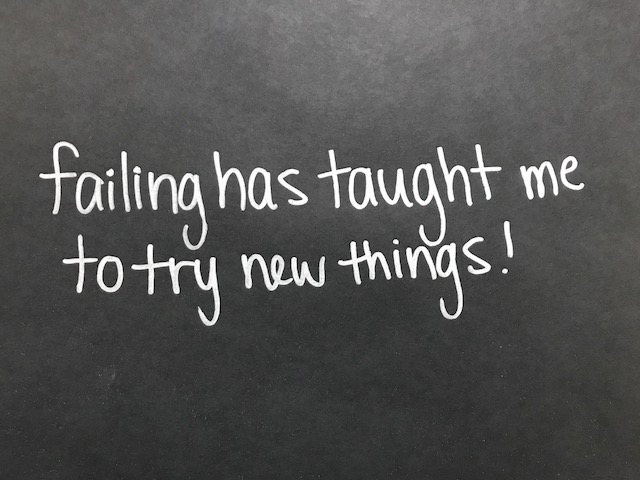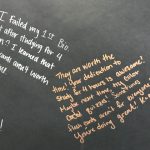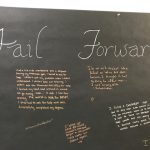Here I am waiting on the mail for my high school student’s report card. Because the school he attends puts the responsibility on him to keep up with his grades (no parent portal to check these things), I truly have no idea what the mail carrier will bring. Is it as good as he has been telling me all these weeks? Or should I prepare for the unexpected?
Regardless of the outcome, I do know that failing–or getting a-really-low-almost-failing-might-as-well-be-failing grade–is not something most parents welcome. Some parents I know view a “C” as “not living up to [there student’s] potential.” However, from my perspective teaching and advising first-year students, we need to offer students a different way to look at failure.
Learning to cope with failure, setbacks, and obstacles is so important to the success of students that I collaborated with my colleagues last month to create the first-ever Fail Forward Week at our institution. We shared our purpose for the week, resources that faculty and students could read or watch and discuss, and opportunities for students to share their own failures on what we called Failure Community Boards. Here are a few photos from our first foray at fail boards:
What have we learned from making failure front and center in our discussion of college success? First, everyone has experienced some sort of academic, personal, or professional failure (usually multiple times, am I right?). And many of us have a healthy response to it: We have realized that the setback has provided us the opportunity to change directions, get the help we needed in the first place, and learn something important about ourselves. The challenges and obstacles have also strengthened our resolve to meet our goals. In essence, Fail Forward Week helped our academic community realize that we are not alone.
How can you help your student develop a healthy response to failure? I recently wrote a short LinkedIn article that provides an overview of how parents can positively respond to their students’ failures. But I also want to remind us parents that how we speak about our students’ experiences with falling short can pave the way for a healthy response that will serve them well in college. Do we judge their shortcomings or do we help them problem-solve? Do we tell them what they should have done or do we guide them on what they can do now to make the most of the situation? What we say and do can go a long way to helping our students develop important college success skills.
–Amy Baldwin, Ed.D and co-author Brian Tietje, Ph. D., a have new book, A High School Parent’s Guide to College Success: 12 Essentials, available on Amazon. She is also the co-author with Dr. Brian Tietje and Dr. Paul Stoltz of The College Experience, The Community College Experience, and The College Experience Compact, all published by Pearson Education. She and her husband are parents of a college freshman and a high school sophomore.




